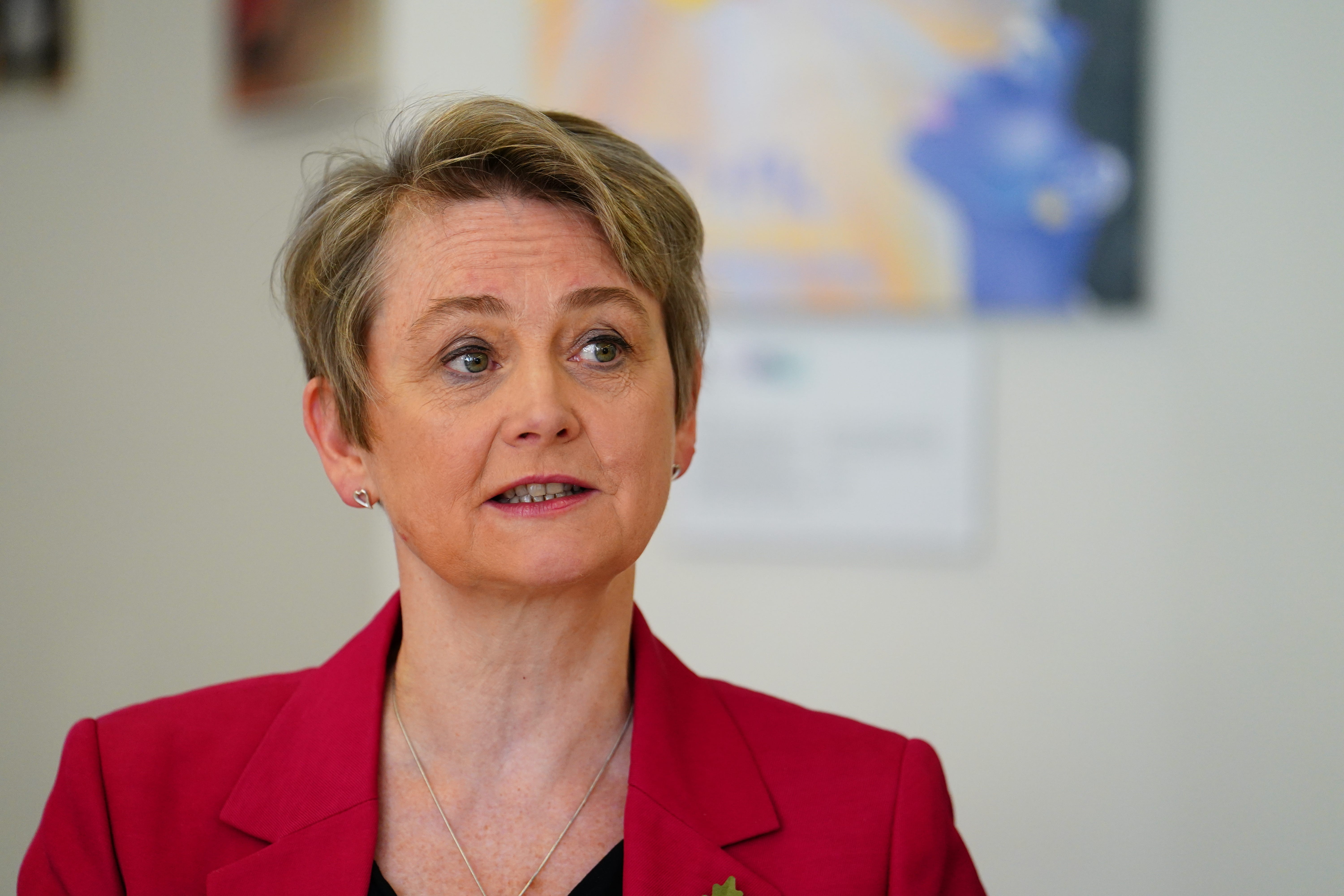Germany to tighten criminal law as people-smuggling ‘action plan’ agreed with UK
Berlin confirmed plans to make it a criminal offence to ‘facilitate the smuggling of migrants to the UK’ as part of the agreement.

Your support helps us to tell the story
From reproductive rights to climate change to Big Tech, The Independent is on the ground when the story is developing. Whether it's investigating the financials of Elon Musk's pro-Trump PAC or producing our latest documentary, 'The A Word', which shines a light on the American women fighting for reproductive rights, we know how important it is to parse out the facts from the messaging.
At such a critical moment in US history, we need reporters on the ground. Your donation allows us to keep sending journalists to speak to both sides of the story.
The Independent is trusted by Americans across the entire political spectrum. And unlike many other quality news outlets, we choose not to lock Americans out of our reporting and analysis with paywalls. We believe quality journalism should be available to everyone, paid for by those who can afford it.
Your support makes all the difference.Germany has pledged to tighten its law to make it easier to prosecute people-smugglers enabling small-boat crossings to Britain, as the two countries signed a new deal aimed at tackling immigration crime.
Berlin confirmed plans to reform its legal framework make it a clear criminal offence to “facilitate the smuggling of migrants to the UK” as part of the agreement, the Home Office said.
The Home Office said the move would give German prosecutors more tools to tackle the supply and storage of dangerous small boats.
Both countries will also commit to exchange information that may help to remove migrant-smuggling content from social media platforms and tackle end-to-end routes of criminal smuggling networks as part of the deal.
It comes ahead of the UK and Germany hosting the so-called Calais Group in London, which sees ministers and police from the two countries, alongside France, Belgium and the Netherlands, gather to discuss migration in Europe.
Delegates are expected to agree a detailed plan to tackle people-smuggling gangs in 2025 at the meeting on Tuesday.
Home Secretary Yvette Cooper said: “For too long organised criminal gangs have been exploiting vulnerable people, undermining border security in the UK and across Europe while putting thousands of lives at risk.
“We are clear that this cannot go on.
“Germany is already a key partner in our efforts to crack down on migrant smuggling, but there is always more we can do together.
“Our new joint action plan with deliver a strengthened partnership with Germany, boosting our respective border security as we work to fix the foundations, and ultimately saving lives.”
Nancy Faeser, German federal minister of the interior said: “We are now stepping up our joint action to fight the brutal activities of international smugglers.
“This is at the core of our joint action plan that we have agreed in London.
“It will help us end the inhumane activities of criminal migrant smuggling organisations.
“By cramming people into inflatable boats under threats of violence and sending them across the Channel, these organisations put human lives at risk.”She said that “many of these crimes are planned in Germany” and the deal would help to counter “this unscrupulous business with even more resolve.”
“This includes maintaining a high investigative pressure, exchanging information between our security authorities as best as possible, and persistently investigating financial flows to identify the criminals operating behind the scenes,” Ms Faeser said.
Shadow home secretary Chris Philp said the announcement “doesn’t go far enough”.
“The British public deserves a serious plan to control our borders and stop criminal gangs,” he said.
“The National Crime Agency has said a deterrent is necessary to reduce the number of crossings, yet Labour scrapped the only deterrent before it even got started.
“Meanwhile the numbers of illegal immigrants coming here continue to climb, with an 18% increase compared to the same period last year, with more than 20,000 people having made the crossing since the election.”